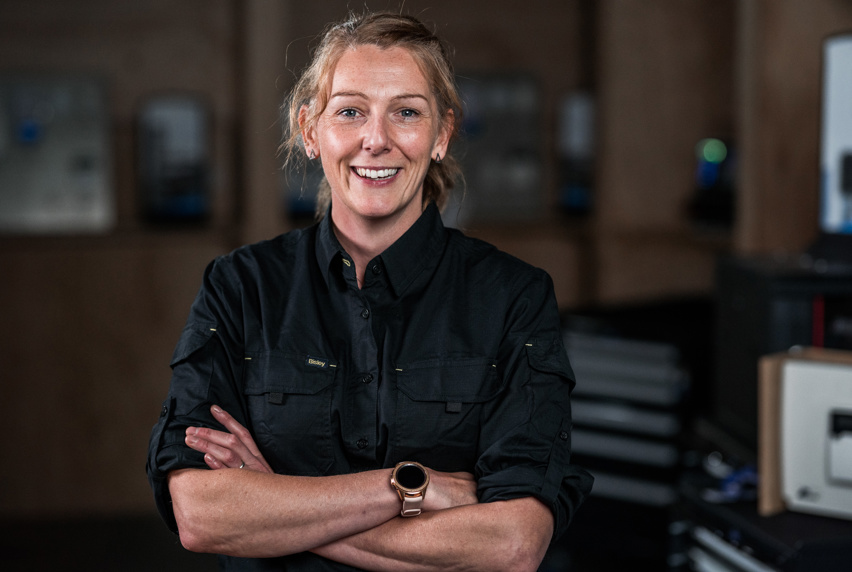Natalie found the key to her career in Locksmithing

A childhood spent in her parents’ suburban hardware store, cutting keys and tinkering with locks and bits of steel set Natalie Ball on a fascinating path to teaching locksmithing at Melbourne Polytechnic.
Natalie had wanted to become an art teacher, but the university course wasn’t for her and her dad noticed how much she enjoyed the hands-on jobs at the shop, so suggested she might want to think about a trade. ‘You can never waste knowledge and a trade’s always with you for life,’ he advised.
Just a matter of time
As she studied the locksmithing course at night at Melbourne Polytechnic, Natalie worked at Chubb Safes as a safe technician. She travelled all over Victoria, to banks and supermarkets and all kinds of businesses, opening safes, repairing them, refurbishing them. If someone needed to get into a locked safe, Natalie would roll up with her tools and get cracking - but cracking locks wasn’t as glamorous as it appears in movies.
‘No, I wish it was like that,’ she says, ‘but usually it's many, many hours of trying to work out what's in that safe door and what model it is before we drill or try and manipulate it open. There's never been one that I've knocked back. It's just a matter of time.’
Light work in a heavy trade
The tools of the trade include a big magnetic drill that adheres itself to the side of the safe. It’s delicate work with heavy gear and as Nat says, ‘if you've got to force something, it's probably not doing it right.’
She spent some time working domestic jobs and calls from people locked out of their houses, with a well-equipped van holding all she needed for repairs and key cutting on site. She also joined her husband in running their own small business, then started to think about getting into teaching her craft.
She joined Melbourne Polytechnic’s ‘trainer under supervision program’ and found a new niche as a teacher. She’s also doing a dual diploma to boost her training and assessment, design and development skills.
Women in Trades
Nat remembers it was tough when she first studied, being the only woman in a class full of older men. And in her early years of work there was a culture of insulting young tradies in a misguided attempt to get them to work harder, but instead it could make them feel worthless and doubt their abilities. ‘Now it's a big turnaround since when I went to trade school.’
As a teacher in the place where she was student, Natalie acknowledges it can feel daunting walking into the big workshops and structures of the Heidelberg campus for the first time, especially as a young woman.
‘I remember a girl who was doing a pre-apprenticeship said to me quietly “How do you do this, being a female?” and I said I don't think about it as being anything different, I don't think that I'm different or the males are different from me and that's how I do it, because it's true. We’re equally skilled. That's what I believe and that's what's got me through.’
So why would a woman want to be a locksmith?
‘It’s very diverse,’ says Nat. ‘A lot of people think it's just cutting keys – it’s not. You can specialise in automotive, or safe work, being a safe technician, or working on houses or commercial alarms. There are so many different areas of locksmithing that you can go into and not be bored with. Your skill sets are very broad range.’
Nat says the trade also gives you a confidence in yourself. ‘I've found in locksmithing you have to navigate people and very different situations. It could be a domestic violence situation, where a woman might feel more comfortable with another female doing their locks for them.
‘Being able to address the situation in the way it should be is a very good skill to have and you’re earning people's trust. That side of locksmithing involves being compassionate, using people skills and social skills. Having all of that really does give you a huge confidence boost, knowing that you're capable of doing all those sort of things’.